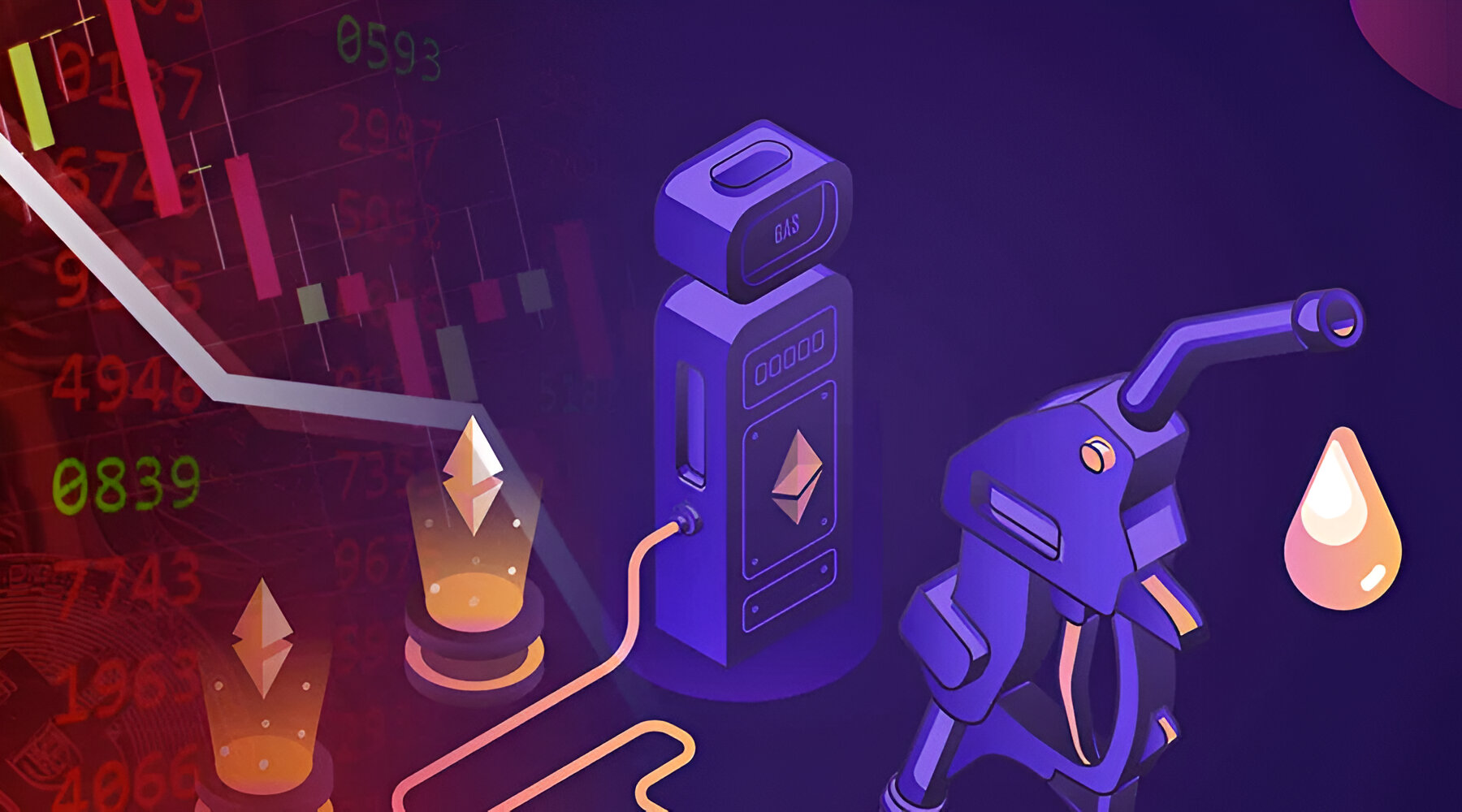Introduction
Welcome to the world of Ethereum, a revolutionary blockchain-based platform that has taken the world by storm. As the second-largest cryptocurrency by market capitalization, Ethereum has garnered a significant following for its potential to disrupt various industries and enable decentralized applications. If you’re here to learn more about the value of 0.2 Ethereum, you’re in the right place.
Ethereum operates on a decentralized network, meaning it is not controlled by any central authority. This sets it apart from traditional financial systems and allows for greater transparency, security, and efficiency. With its native cryptocurrency, Ether (ETH), Ethereum facilitates transactions and powers smart contracts, which are self-executing agreements that run on the blockchain.
Before delving into the value of 0.2 Ethereum, let’s understand what Ethereum is all about and how it differs from other cryptocurrencies like Bitcoin. While Bitcoin was primarily designed as a digital currency, Ethereum has a broader scope. It serves as a platform for developers to build and deploy decentralized applications (dApps) that can range from finance and gaming to healthcare and supply chain management.
One of the key features of Ethereum is its ability to execute smart contracts. These contracts are coded with predefined rules and conditions, and once the conditions are met, the contract automatically executes. This eliminates the need for intermediaries and enhances efficiency in various industries.
Now, let’s delve into the main question at hand: what is 0.2 Ethereum worth? Understanding its value requires analyzing various factors that influence the price of Ethereum as a whole, as well as considering personal investment goals and risk tolerance.
Understanding Ethereum
To truly understand the value of 0.2 Ethereum, it’s important to grasp the fundamentals of Ethereum itself. As mentioned earlier, Ethereum serves as a platform for decentralized applications, allowing developers to create innovative solutions on its blockchain. But how does it all work?
At the core of Ethereum is the Ethereum Virtual Machine (EVM), which executes smart contracts. Think of the EVM as a decentralized computer that runs code across a network of nodes, ensuring the integrity and reliability of Ethereum’s operations. This distributed nature of the EVM makes Ethereum highly resistant to hacking and censorship.
What sets Ethereum apart from other cryptocurrencies is its programmable nature. Smart contracts on the Ethereum blockchain can be written in a programming language called Solidity. Developers can define conditions, actions, and interactions within these smart contracts to create decentralized applications.
Ethereum also has its native cryptocurrency, Ether (ETH). Ether is used to pay for transactions and computational services on the Ethereum network. It is also a tradable asset, which contributes to its value. The demand for Ether is influenced by various factors, such as market sentiment, technological advancements, and the overall adoption of Ethereum’s ecosystem.
Ethereum operates on a consensus mechanism called Proof-of-Stake (PoS), which is currently being implemented through a network upgrade known as Ethereum 2.0. This transition aims to make Ethereum more scalable, secure, and energy-efficient. PoS allows users to stake their Ether as collateral and participate in the network’s validation process, earning rewards in return.
Furthermore, Ethereum’s versatility lies in its compatibility with different tokens and standards. Anyone can create their own digital assets, known as tokens, on the Ethereum blockchain using standards like ERC-20 or ERC-721. These tokens have various use cases, from representing virtual goods in games to facilitating crowdfunding through Initial Coin Offerings (ICOs).
In summary, Ethereum is an open-source, decentralized platform that enables the creation of decentralized applications and the execution of smart contracts. Its programmable nature, native cryptocurrency Ether, and compatibility with tokens make it a robust and versatile platform for developers and investors alike.
What is 0.2 Ethereum?
Now that we have a better understanding of Ethereum as a platform, let’s focus on what exactly 0.2 Ethereum represents. Ethereum, like many other cryptocurrencies, is divisible into smaller units. The smallest unit of Ethereum is called Wei, named after Wei Dai, a computer scientist and pioneer of cryptocurrency.
One Ethereum (ETH) consists of 1,000,000,000,000,000,000 Wei. As Ethereum is divisible, it can be broken down into smaller fractions to accommodate various transaction values. One such fraction is called Ether, which is equivalent to one quintillion Wei.
Therefore, 0.2 Ethereum represents 200,000,000,000,000,000 Wei. While this may seem like a large number of units, it is important to note that the value of Ethereum is not solely determined by the number of units held, but rather the market price per unit.
The value of 0.2 Ethereum is directly influenced by the current market value of Ethereum. Just like any other investment, the price of Ethereum is subject to fluctuations due to factors such as market demand, investor sentiment, global economic conditions, and regulatory developments.
It’s important to note that the value of 0.2 Ethereum can change over time. As the cryptocurrency market is highly volatile, the price of Ethereum can experience significant fluctuations within short periods. It’s crucial for investors to stay informed about market trends and make informed decisions based on their risk tolerance and investment goals.
Next, let’s explore the various factors that can affect the value of Ethereum as a whole, which will give us a better understanding of the potential value of 0.2 Ethereum in the broader cryptocurrency market.
Factors Affecting the Value of Ethereum
Several factors influence the value of Ethereum, which in turn affects the worth of 0.2 Ethereum. Understanding these factors is essential for investors and enthusiasts alike. Let’s explore some of the key factors that can impact the value of Ethereum:
1. Market Sentiment: Investor sentiment plays a crucial role in the valuation of cryptocurrencies. Positive market sentiment, driven by factors such as increased adoption, technological advancements, and favorable news, can drive the demand for Ethereum and increase its value.
2. Overall Cryptocurrency Market: The cryptocurrency market as a whole can impact the value of Ethereum. Market trends, movements in Bitcoin’s price, regulatory developments, and geopolitical events can all influence the sentiment and investment patterns in the cryptocurrency market, thereby affecting Ethereum’s value.
3. Technological Advancements: Ethereum is continuously evolving, and technological advancements within the Ethereum ecosystem can have a significant impact on its value. Updates, upgrades, and improvements to the Ethereum blockchain, such as the ongoing transition to Ethereum 2.0 and the implementation of new scaling solutions, can increase investor confidence and drive demand.
4. Adoption and Use Cases: The adoption of Ethereum and its use in real-world applications can enhance its value. Increased usage of Ethereum for decentralized finance (DeFi) projects, gaming platforms, non-fungible tokens (NFTs), and other decentralized applications can attract more users and investors, driving up demand and subsequently its value.
5. Regulatory Environment: Regulatory developments and government policies regarding cryptocurrencies can also impact the value of Ethereum. Favorable regulations or regulatory clarity can provide a boost to investor confidence, while stringent regulations or bans in certain regions can have a negative effect on its value.
6. Partnerships and Collaborations: Partnerships and collaborations with established companies and institutions can lend credibility and visibility to Ethereum. Collaborations with major players in finance, technology, and other industries can attract more investors and users, leading to an increase in value.
Keep in mind that these factors are interconnected and can interact in complex ways. It’s important to stay updated with the latest news, market trends, and developments within the Ethereum ecosystem to have a better understanding of how these factors influence its value and the potential worth of 0.2 Ethereum.
Current Value of 0.2 Ethereum
The current value of 0.2 Ethereum can fluctuate as the cryptocurrency market is known for its volatility. To determine the value of 0.2 Ethereum, you need to consider the prevailing market price per unit of Ethereum, which is subject to constant changes. At any given moment, you can check the price of Ethereum on various cryptocurrency exchanges or financial websites.
For example, if the current market price of one Ethereum is $500, then the value of 0.2 Ethereum would be 0.2 multiplied by $500, which equals $100. However, it’s crucial to note that cryptocurrency prices can experience rapid fluctuations, and the value of 0.2 Ethereum can change within a matter of minutes.
Various factors contribute to these price movements, as mentioned in the previous section. Market demand, investor sentiment, technological advancements, regulatory developments, and overall market conditions all play a role in determining the value of Ethereum and, consequently, the value of 0.2 Ethereum.
It’s important to remember that when it comes to investing in cryptocurrencies, including Ethereum, there are no guarantees. The cryptocurrency market can be highly unpredictable and subject to significant price swings. Therefore, it’s essential to conduct thorough research, understand the risks involved, and make informed decisions based on your investment goals and risk tolerance.
To track the current value of 0.2 Ethereum, consider using reliable cryptocurrency tracking platforms, which provide real-time price updates for various cryptocurrencies, including Ethereum. These platforms can help you monitor the price movements and make more informed decisions regarding the value of your 0.2 Ethereum holdings.
Now that we have explored the current value of 0.2 Ethereum, let’s discuss the process of buying this amount of Ethereum and delve into its investment potential.
How to Buy 0.2 Ethereum
If you’re interested in buying 0.2 Ethereum, there are several steps you can take to acquire this cryptocurrency. Here’s a general guide on how to buy 0.2 Ethereum:
- Create a Cryptocurrency Exchange Account: Start by creating an account on a reputable cryptocurrency exchange that supports Ethereum. Some popular exchanges include Coinbase, Binance, and Kraken. Complete the registration process and verify your identity if required.
- Deposit Funds: After creating an account, you need to deposit funds into your exchange account. Most exchanges accept deposits in various forms, including bank transfers, credit/debit cards, and other cryptocurrencies. Choose the suitable deposit method and follow the instructions provided by the exchange.
- Place a Buy Order: Once your account is funded, navigate to the trading section of the exchange and search for Ethereum (ETH). Locate the ETH/USD (ETH/your local currency) trading pair and enter the amount of Ethereum you would like to buy, which in this case is 0.2 Ethereum. Review the order details and place your buy order.
- Securely Store Your Ethereum: After your buy order is executed, the purchased Ethereum will be credited to your exchange account. To ensure the security of your investment, it’s recommended to transfer your Ethereum to a personal cryptocurrency wallet. Hardware wallets like Ledger or software wallets like Trust Wallet and Metamask offer enhanced security for storing your Ethereum.
- Monitor the Market: Once you have bought 0.2 Ethereum and secured it in a wallet, keep an eye on the market to stay informed about price movements and any potential opportunities or risks. Cryptocurrency prices can be volatile, so it’s important to stay updated with market trends.
Remember, the process of buying Ethereum may vary slightly depending on the cryptocurrency exchange you choose and your geographical location. It’s always recommended to research and compare different exchanges to find the one that best suits your needs in terms of fees, security measures, and available features.
Additionally, please note that investing in cryptocurrencies carries risks, and it’s important to only invest what you can afford to lose. Do your own research, seek advice from financial professionals if needed, and make informed decisions before buying 0.2 Ethereum or any other cryptocurrency.
Investment Potential of 0.2 Ethereum
As an investor, understanding the potential investment value of 0.2 Ethereum is crucial for making informed decisions. However, it’s important to note that investing in cryptocurrencies, including Ethereum, comes with inherent risks, and past performance does not guarantee future results. Here are some factors to consider when assessing the investment potential of 0.2 Ethereum:
1. Market Growth: Over the years, the cryptocurrency market has demonstrated significant growth. Ethereum, with its robust ecosystem and wide range of applications, has the potential to continue attracting users, developers, and investors. Increased adoption and use cases can potentially drive demand for Ethereum, potentially leading to an increase in its value.
2. Technological Advancements: Ethereum is continuously evolving, with ongoing developments and upgrades to enhance its scalability, security, and functionalities. Technological advancements, such as the transition to Ethereum 2.0, can improve the Ethereum ecosystem, attract more users, and positively impact its value.
3. Potential Use Cases: Ethereum’s programmable nature enables the creation of decentralized applications (dApps) and the execution of smart contracts. The versatility of Ethereum opens up a wide range of potential use cases across various industries, such as finance, gaming, supply chain management, and more. As more real-world use cases are developed and implemented, it can contribute to the growth and value of Ethereum.
4. Diversification Benefits: Adding 0.2 Ethereum to your investment portfolio can provide diversification benefits. Cryptocurrencies tend to have a low correlation with traditional assets like stocks and bonds, which means that they can act as a hedge and provide portfolio diversification. However, it’s important to assess your risk tolerance and consider the volatility and uncertainties associated with cryptocurrency investments.
5. Risk Factors: Cryptocurrency investments, including Ethereum, have risks associated with them. Factors such as regulatory changes, security vulnerabilities, market volatility, and technological challenges can impact the value of Ethereum. It’s crucial to understand these risks and only invest what you can afford to lose.
6. Long-Term Outlook: Some investors see Ethereum as a long-term investment opportunity. They believe that the growth of decentralized applications, the expansion of the DeFi sector, and the continuous development of the Ethereum ecosystem could lead to increased adoption and potential price appreciation over the long term.
It’s important to conduct thorough research, stay informed about the latest developments in the cryptocurrency market, and assess your risk tolerance and investment goals when considering the investment potential of 0.2 Ethereum or any other cryptocurrency.
Lastly, seeking advice from financial professionals or consulting with experienced cryptocurrency investors can provide additional perspectives and insights to help you make informed investment decisions.
Risks and Considerations
Investing in 0.2 Ethereum or any other cryptocurrency comes with risks that should be carefully considered. While cryptocurrencies like Ethereum offer potential rewards, it’s important to be aware of the following risks:
1. Volatility: The cryptocurrency market is notorious for its volatility. Prices can experience rapid and significant fluctuations within short periods. The value of 0.2 Ethereum can change considerably, which may result in substantial gains or losses. Investors should be prepared for price volatility and understand that short-term price movements can be unpredictable.
2. Regulatory Uncertainty: The regulatory landscape for cryptocurrencies is still evolving and can vary by country. Regulatory changes, such as bans or strict regulations, can have an adverse impact on the value and usability of Ethereum. It’s important to stay updated on regulatory developments and understand the potential implications for your investment.
3. Security Risks: While blockchain technology is designed to be secure, there are still vulnerabilities and risks involved. Hacking incidents, scams, and fraudulent activities can pose a threat to cryptocurrency investors. It’s essential to take proper security measures, such as using hardware wallets, enabling two-factor authentication, and being cautious of phishing attempts.
4. Market Manipulation: The decentralized nature of cryptocurrencies can make them susceptible to market manipulation. Pump-and-dump schemes, insider trading, and market manipulation tactics can artificially inflate or deflate the price of cryptocurrencies, including Ethereum. Investors should be cautious of such activities and conduct due diligence before making investment decisions.
5. Technology Risks: Although Ethereum is a well-established cryptocurrency, it still faces technological risks. Potential issues such as network congestion, scalability challenges, and software bugs can impact the performance and usability of Ethereum and its associated applications. Keeping up-to-date with Ethereum’s development roadmap and upgrades can provide insights into potential technology-related risks.
6. Loss of Access: Cryptocurrencies are stored in digital wallets, and the loss of access to these wallets can result in the loss of funds. It is vital to securely store private keys and backup wallet information to prevent the risk of losing access to your Ethereum holdings. Carefully following best practices for wallet security can help mitigate this risk.
Considering these risks, it’s crucial to evaluate your risk tolerance, financial situation, and investment goals before investing in 0.2 Ethereum or any other cryptocurrency. It’s recommended to only invest what you can afford to lose and diversify your investment portfolio to manage risks better.
Additionally, staying informed about market trends, conducting thorough research, and seeking advice from financial professionals or experienced investors can help you make informed decisions and navigate the cryptocurrency market thoughtfully.
Conclusion
In conclusion, understanding the value and investment potential of 0.2 Ethereum requires a comprehensive understanding of Ethereum itself and the factors that influence its value. Ethereum is a decentralized platform that enables the creation of decentralized applications and smart contracts, powered by its native cryptocurrency Ether (ETH).
When considering the value of 0.2 Ethereum, it’s important to keep in mind that its worth is determined by the market price per unit of Ethereum, which can fluctuate due to various factors such as market sentiment, technological advancements, adoption rates, and regulatory developments.
Buying 0.2 Ethereum involves creating an account on a cryptocurrency exchange, depositing funds, placing a buy order, and securely storing the Ethereum in a personal wallet. However, it’s crucial to evaluate the risks associated with cryptocurrency investments, including price volatility, regulatory uncertainties, security risks, and market manipulation.
Furthermore, understanding the investment potential of 0.2 Ethereum requires a careful consideration of market growth, technological advancements, potential use cases, diversification benefits, and risk factors. As with any investment, it’s important to conduct thorough research, assess your risk tolerance, and make informed decisions based on your investment goals.
Investing in cryptocurrencies carries risks, and it’s crucial to remain vigilant, stay informed with market trends, and adapt your investment strategy accordingly. Seeking advice from financial professionals or consulting with experienced cryptocurrency investors can provide valuable insights to support your investment journey.
Ultimately, the value and investment potential of 0.2 Ethereum can fluctuate over time, and it’s important to approach cryptocurrency investments with caution, understanding both the potential rewards and risks involved.

























